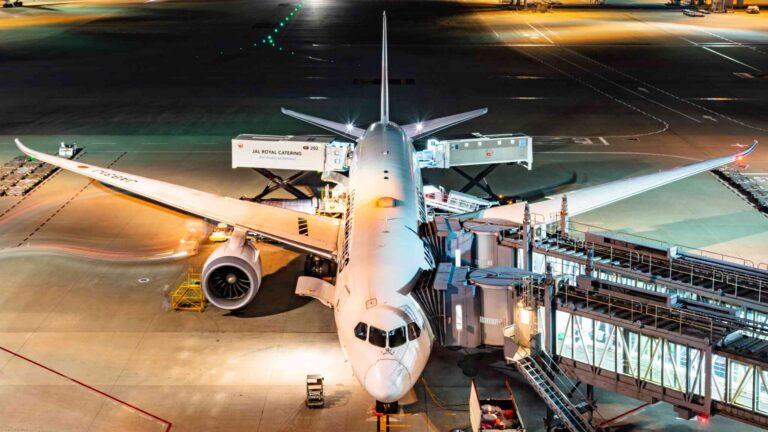Air travel is one of the most revolutionary inventions of modern times, allowing people to fly across oceans and continents in a fraction of the time than it would have taken before. Over the years, air travel technology has advanced significantly, with the introduction of newer generation aircraft and improved safety standards.
But what does the future have in store for air travel? What are new technologies being used to improve the flying experience and make air travel even faster, safer, and more efficient?
Table of Contents
Air travel, what the future holds
The advancements in technology have opened up a world of possibilities for air travel. From hydrogen-powered planes to supersonic flights and futuristic cabin designs, the future of air travel looks bright. Here are some recent updates on the future of air travel.
1. Hydrogen-powered planes
One of the most exciting advancements in aviation is the use of hydrogen-powered aircraft, which has the potential to lower aviation emissions and improve sustainability and air quality. In an aircraft driven by hydrogen, electricity is produced by hydrogen fuel cells, which are then utilized to drive an electric motor and move the craft forward. Because they may be fueled by renewable energy sources like solar or wind, these aircraft have a lot of promise.
2. Air taxis
Drones, which are smaller autonomous aircraft that can be utilized for short-distance intra-city travel, are also referred to as air taxis. Because they can take off and land vertically and are powered by electric motors, these air taxis are perfect for crowded urban areas. They may also be operated with a lot less human involvement than conventional planes and require a lot less maintenance.
Read also: The taxi-drone becomes a reality, by 2024 Volocopter will connect Rome and its airport
3. Bringing back the supersonic flights
2003 saw the end of supersonic travel because of excessive fuel use and noise levels. Yet, improvements in aeronautical engineering have enabled faster flight than ever before for aeroplanes. New supersonic aircrafts are being developed by organizations like NASA and Boom Supersonic that can fly twice as fast as sound while making a lot less noise.
4. Futuristic cabin design
Many airlines are adopting technology like virtual reality, augmented reality, and gesture recognition into cabin design to give passengers a more immersive experience. Along with greater seating options, better lighting, and cutting-edge entertainment systems, cabins are also being constructed to be larger and more comfortable.
5. Shifting from the traditional wing design
Conventional aeroplane wings are made to provide lift by directing air downward. The drag produced by the wing is greater than the lift; hence this design can be inefficient at high speeds. Unconventional wing designs, such as swept wings, delta wings, or even blended-wing bodies, which can provide greater lift and minimize drag, may be introduced in the future of aviation.
6. Advanced and better in-flight entertainment
In-flight entertainment has come a long way from the days of paper meal trays and tiny screens. Today, most airlines offer high-definition touchscreens with access to a variety of movies, music, games, and even virtual reality experiences. In the near future, we could see the introduction of Artificial Intelligence-powered services such as voice recognition and virtual personal assistants to make the in-flight experience even more convenient and enjoyable for passengers.
How will technology be integrated into air travel
As with any industry, technology is an essential part of the airline industry. Airlines are constantly looking for ways to improve the customer experience and make air travel more efficient, safe, and cost-effective. Companies can adopt new technologies such as automation, artificial intelligence, big data analytics, robotics, and even blockchain to achieve this.
Automation will allow airlines to streamline operations, minimise delays and provide more reliable services. Companies can use artificial intelligence to predict and analyze customer behavior, as well as improve the efficiency of aircraft maintenance. Big data analytics can also help airlines with better scheduling and flight optimization.
Robotics can reduce labor costs by automating mundane tasks such as baggage handling, check-in procedures, and more. Finally, companies can use blockchain technology to securely store data, such as passenger information and flight details. As these technologies become more prevalent, we will see a shift from traditional air travel to smarter, safer, and more efficient ways of flying.
What are some implications of new technology in the airline industry
The introduction of new technologies into the airline industry can bring both opportunities and challenges. While technology can make air travel more efficient, safe, and cost-effective, it also comes with its own set of risks. For instance, there is a risk of data breaches due to cyber attacks or human error. Misuse or sale of personal information on the dark web is also a potential concern.
Additionally, automation can lead to job losses as more tasks become automated, and machines replace human labor. Finally, there is a risk of technical malfunction due to software bugs or hardware failure that could cause significant delays and disruption in service.
Overall, technology is transforming the airline industry in many ways and brings both opportunities and challenges. With the right approach, airlines can leverage technology to create a better customer experience while ensuring the safety and security of passengers.
Read also: All about Overture Jet, the supersonic plane that will connect London and New York in 3.5 hours












